BY FRASER HOWIE
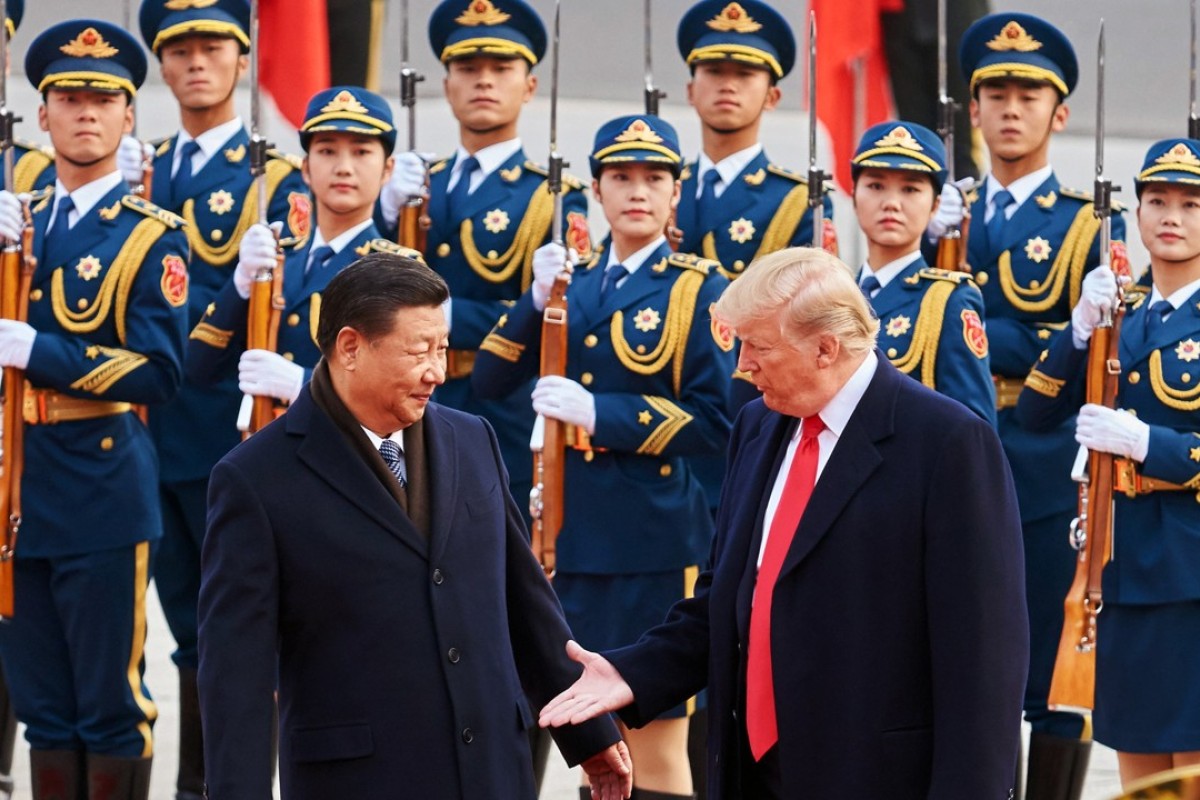 Thanks to US President Donald Trump and his “America first” policy, the global economic and trade outlook perhaps has never been so uncertain. Nowhere are these economic and policy shock waves being felt more than in China. And, Beijing is responding the same way it does every time it anticipates trouble – by pumping cash into its system. It has already used targeted reserve requirement cuts for select banks. This week the People’s Bank of China (PBOC) pushed US$74 billion into the system to get funds to the small-business sector. The State Council also announced US$200 billion of infrastructure spending to boost what were weak infrastructure numbers, while the currency fell to 6.8 to the dollar to take the edge off tariffs. It’s a playbook we have seen before.
Thanks to US President Donald Trump and his “America first” policy, the global economic and trade outlook perhaps has never been so uncertain. Nowhere are these economic and policy shock waves being felt more than in China. And, Beijing is responding the same way it does every time it anticipates trouble – by pumping cash into its system. It has already used targeted reserve requirement cuts for select banks. This week the People’s Bank of China (PBOC) pushed US$74 billion into the system to get funds to the small-business sector. The State Council also announced US$200 billion of infrastructure spending to boost what were weak infrastructure numbers, while the currency fell to 6.8 to the dollar to take the edge off tariffs. It’s a playbook we have seen before.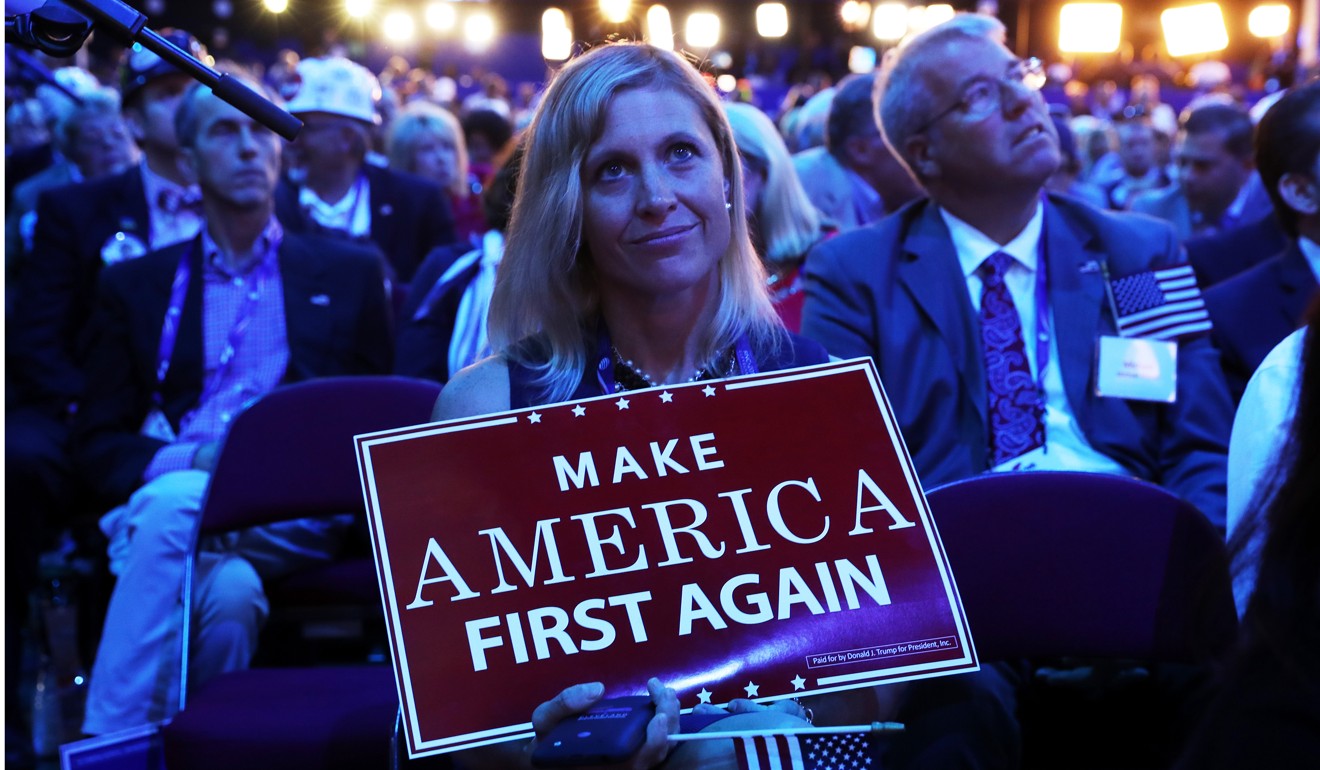 A delegate holds up a sign at the Republican National Convention in 2016. Photo: AFP
A delegate holds up a sign at the Republican National Convention in 2016. Photo: AFP
Following the global shock in 2008 due to the financial crisis, Beijing panicked when a reported 20 million migrant workers had or were at risk of losing their jobs. After years of trying to bring financial discipline to the banks, they opened the credit spigot and let the money flow. That stimulus, hailed at the time as the saviour of global growth, is now one of the main causes of the debt dependency which Beijing still struggles to rein in.
To some, Beijing’s rapid fiscal and monetary moves may seem like strength: it is proactive, decisive and has the financial capacity to act to avert the worst. But in reality, it is a sign of utter confusion. Trump has clearly thrown China off kilter.
In the past few years, Beijing has understood the threats to the economy and has started to clamp down on risks in the financial sector, cross-border flows and the shadow banks. There have been successes, and many traditional metrics of credit growth or shadow-banking balances did slow or fall, but often the lending merely rebranded itself under a different name.
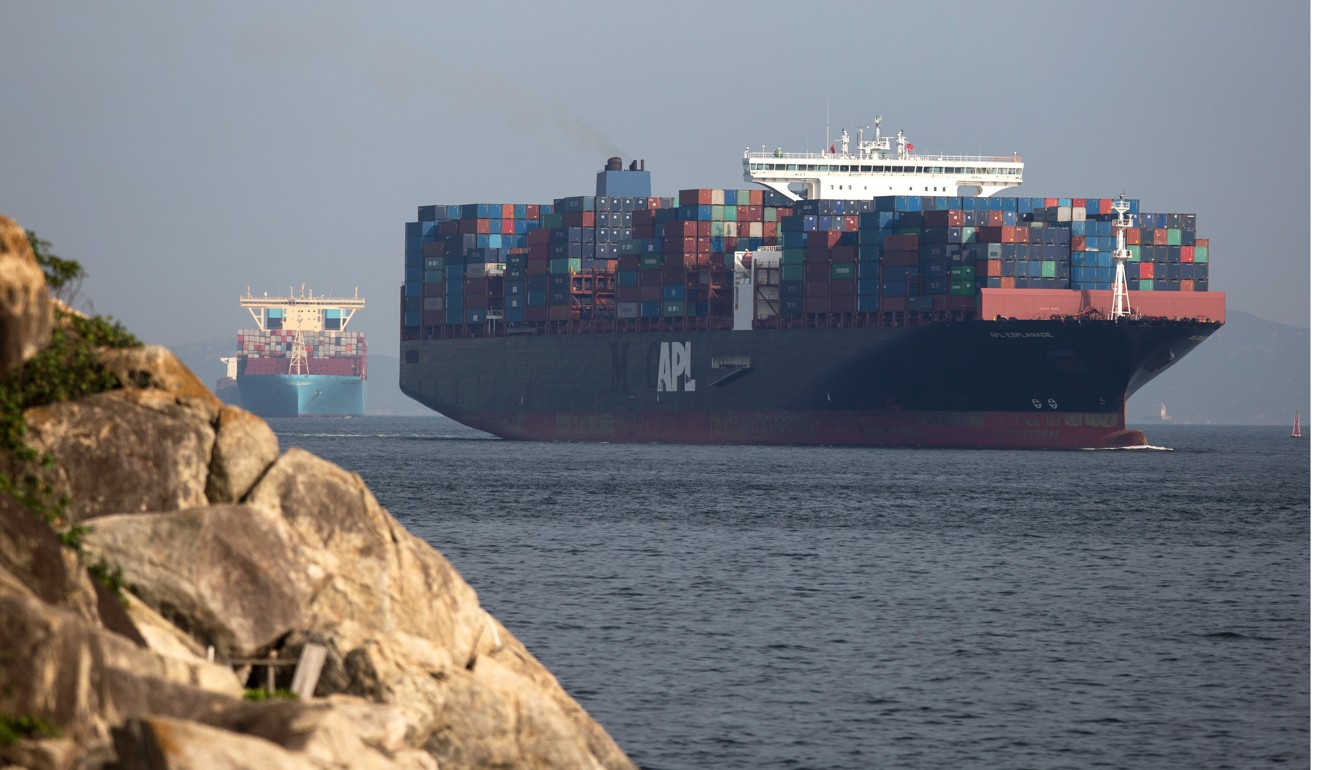 A container ship in the East Lamma Channel on the way to Hong Kong. Photo: EPA
A container ship in the East Lamma Channel on the way to Hong Kong. Photo: EPA
Now the calculus has changed again. Trump went lightly on China in his first year, and was best friends with President Xi Jinping. This gave the Chinese a false sense of security when dealing with the Donald. A focus on North Korea, not trade, didn’t prepare Beijing for what came next.
Trump has for years talked tough when it comes to China and trade. His basic metric to measure the relationship, the deficit, is a poor one. But that debate has brought into the open the unfairness and unlevel playing field for foreign businesses in China.
Western policy for 30 years has been one of engagement with the hope for change in China. Trump rejects that; you can be a foe on Monday and best friends by Tuesday. Deals are the worst ever or the best ever. Everything is fluid for Trump, everything is in play.
Chinese leadership find themselves in a bind. Xi and the official media have been remarkably restrained in their pushback against the trade war. Touchy-feely statements on fighting protectionism sounds hollow on the lips of Chinese leaders. They are able to try and boost the economy domestically, but Trump is too unpredictable to formulate a long-term policy. The Chinese aren’t even clear what Trump wants, so how can they respond?
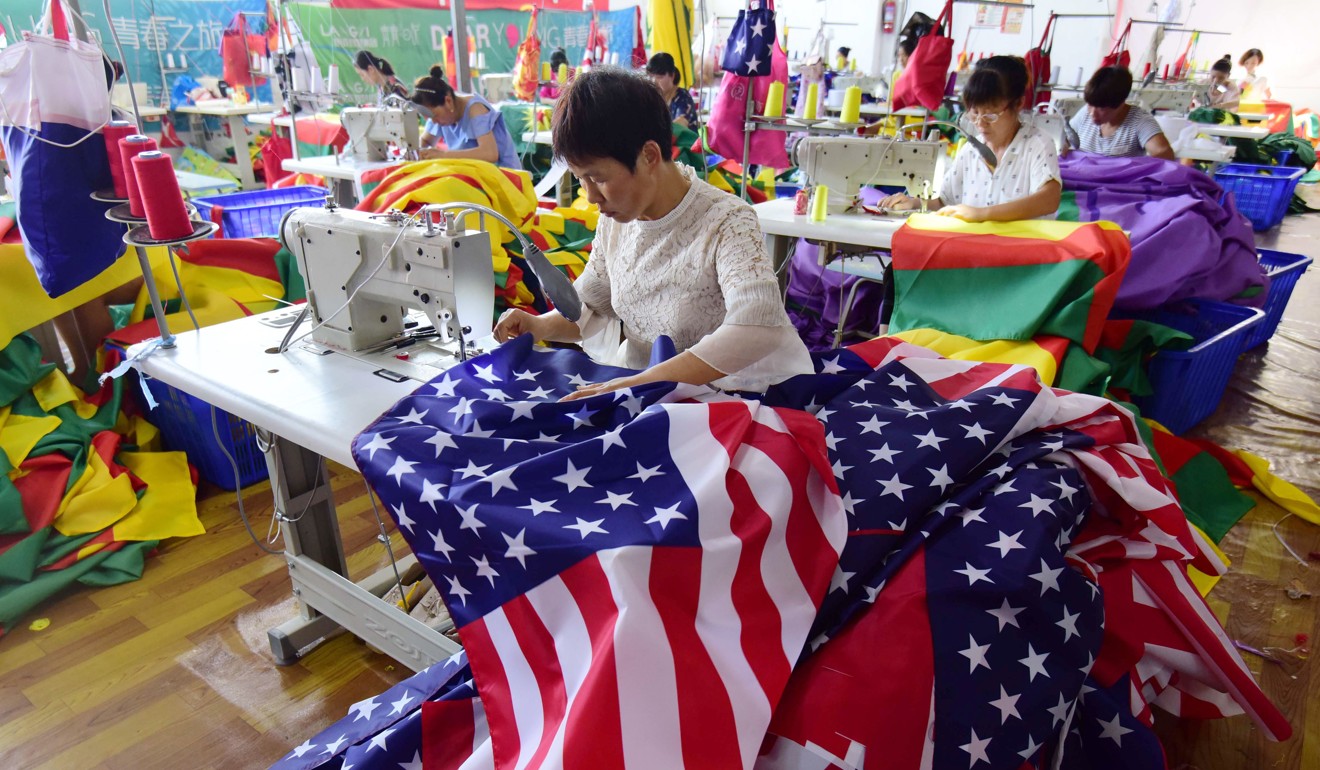 Chinese employees sew US flags at a factory in Fuyang in China's eastern Anhui province. Photo: AFP
Chinese employees sew US flags at a factory in Fuyang in China's eastern Anhui province. Photo: AFP
The trade war has now started, and could well escalate within weeks. What the long-term impacts of a trade war is, no one knows. There hasn’t been one for decades and certainly not one in an era of global supply chains. It’s a trade war Beijing didn’t even think would happen at the start of the year.
Beijing is acting fast to try and dampen the coming shocks, yet the formal banking sector is very bad at getting money to small businesses; it is good getting it to local governments and state-owned enterprises. That’s partly why the shadow banking sector developed. As for infrastructure spending, whether it is at home or abroad under the Belt and Road Initiative, Beijing has without doubt wasted vast quantities of money on vanity projects which have very little financial return.
If economic numbers and pain on the ground increase, then only expect more support from the PBOC. It isn’t an independent bank and, especially in times of crisis, it is the political leadership which is in charge. Good financial housekeeping can wait, keep the growth going and the money flowing – the mess can be cleaned up later.
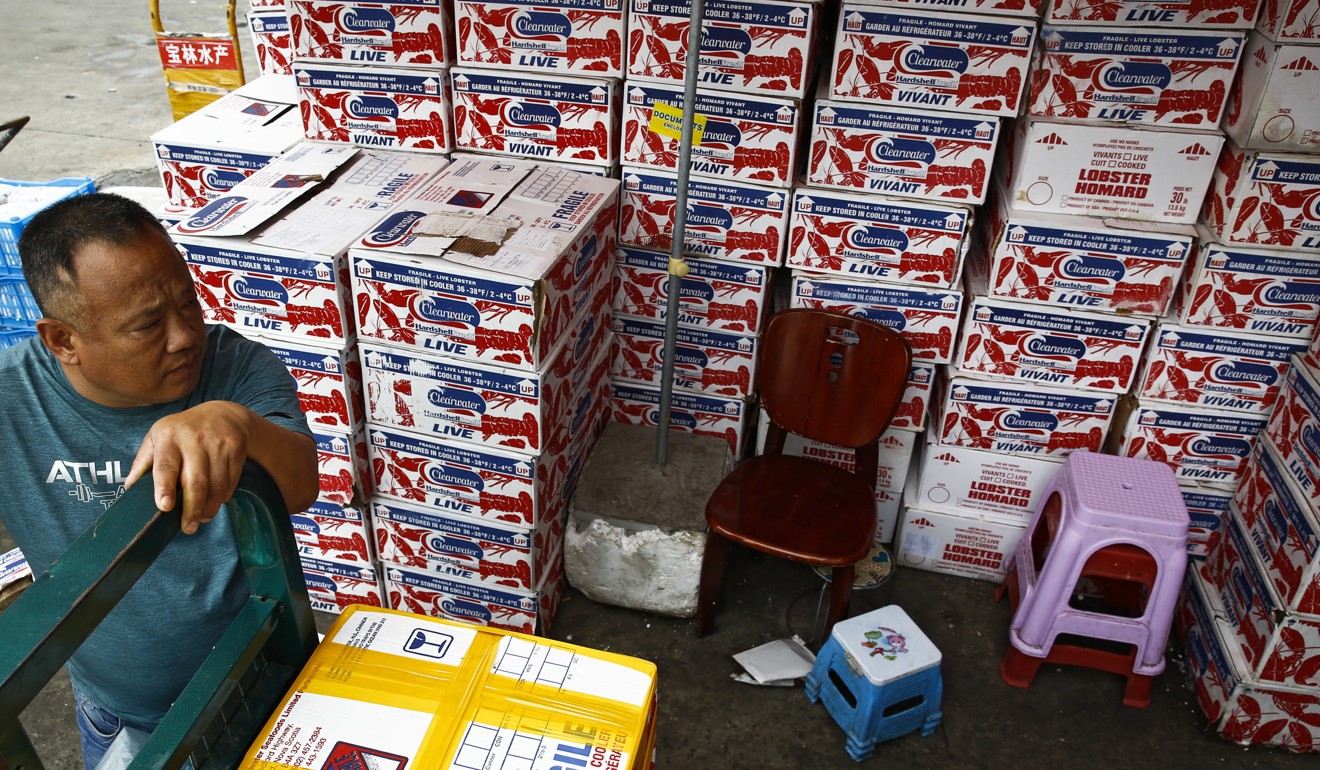 A man waits for the goods to be loaded on his tricycle at a dealer selling imported seafoods at the Jingshen seafood market in Beijing. Photo: AP
A man waits for the goods to be loaded on his tricycle at a dealer selling imported seafoods at the Jingshen seafood market in Beijing. Photo: AP
Beijing maybe shocked by how things have played out for the moment, but they haven’t lost control of levers of power in the economy, nor are they going to stand by as pressure mounts. A coordinated monetary and fiscal policy can indeed avert short-term impacts, but China hasn’t even cleaned up the post-financial crisis stimulus and is now embarking on another as the outlook becomes ever more complicated.
Yet again, China is facing a very delicate balancing act. In November, America will see midterm elections which could change the dynamic again, but the possibility of a second term for Trump should not be discounted. China will continue to be in Trump’s crosshairs. Pumping more money into an already bloated economy may have worked in the past, but the Chinese may find out that indeed this time really is different.
No comments:
Post a Comment